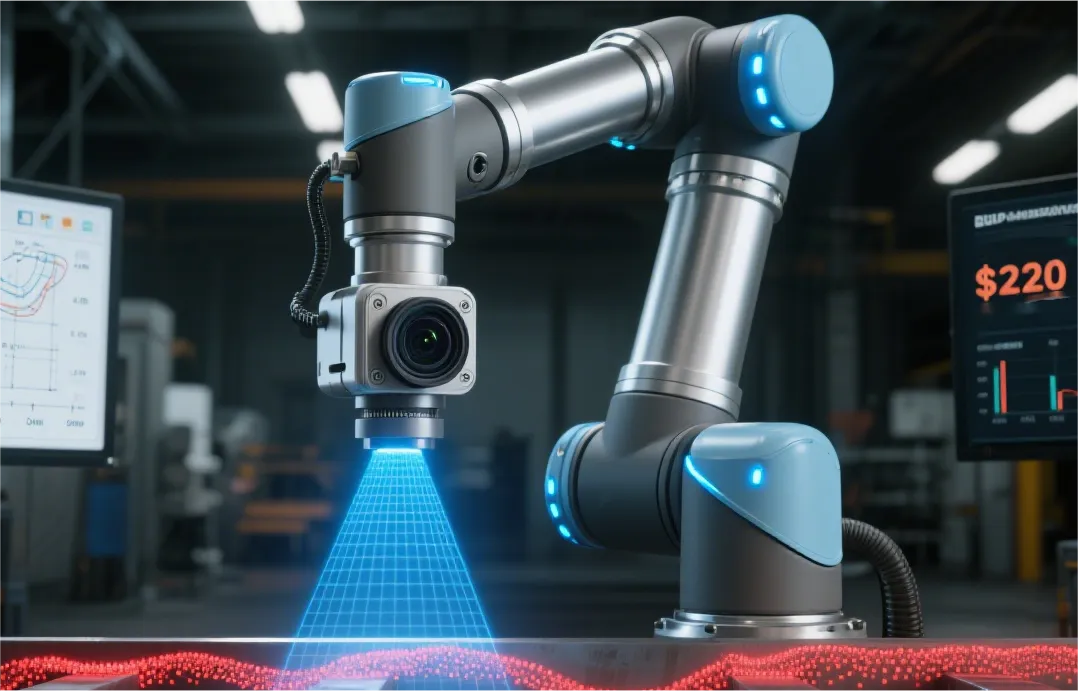PRODUCTS
3D Vision: Robots Achieve 0.02mm Precision
 A robotic arm is a human arm-simulating device with motor-driven joints. The global industrial robotic arm market hit $22 billion in 2024, growing at over 12% annually. Six-axis robots, with 6 degrees of freedom, dominate 45% of high-precision fields like automotive welding.
A robotic arm is a human arm-simulating device with motor-driven joints. The global industrial robotic arm market hit $22 billion in 2024, growing at over 12% annually. Six-axis robots, with 6 degrees of freedom, dominate 45% of high-precision fields like automotive welding.
Human vision provides 83% of information (per psychologist Albert M. Charetra). This drives the 3D machine vision market, projected to reach $15.7 billion by 2025 with 15.2% annual growth. Unlike 2D cameras (X/Y coordinates only), 3D cameras capture Z-axis depth via structured light/LiDAR, creating 3D point clouds.
DLP structured light welding cameras penetrate 10,000+ lux arc light, enabling 0.02mm precision in teach-free welding—far exceeding human welders' 0.5-1mm limit while boosting efficiency 30%. In electronics, 3D-vision robots position chip pins with ±0.01mm error; in auto workshops, they cut welding defects by over 90%.
Over five years, 3D vision integration has transformed robotic arms from "blind operation" to "precision perception," redefining manufacturing accuracy.
 A robotic arm is a human arm-simulating device with motor-driven joints. The global industrial robotic arm market hit $22 billion in 2024, growing at over 12% annually. Six-axis robots, with 6 degrees of freedom, dominate 45% of high-precision fields like automotive welding.
A robotic arm is a human arm-simulating device with motor-driven joints. The global industrial robotic arm market hit $22 billion in 2024, growing at over 12% annually. Six-axis robots, with 6 degrees of freedom, dominate 45% of high-precision fields like automotive welding.
Human vision provides 83% of information (per psychologist Albert M. Charetra). This drives the 3D machine vision market, projected to reach $15.7 billion by 2025 with 15.2% annual growth. Unlike 2D cameras (X/Y coordinates only), 3D cameras capture Z-axis depth via structured light/LiDAR, creating 3D point clouds.
DLP structured light welding cameras penetrate 10,000+ lux arc light, enabling 0.02mm precision in teach-free welding—far exceeding human welders' 0.5-1mm limit while boosting efficiency 30%. In electronics, 3D-vision robots position chip pins with ±0.01mm error; in auto workshops, they cut welding defects by over 90%.
Over five years, 3D vision integration has transformed robotic arms from "blind operation" to "precision perception," redefining manufacturing accuracy.